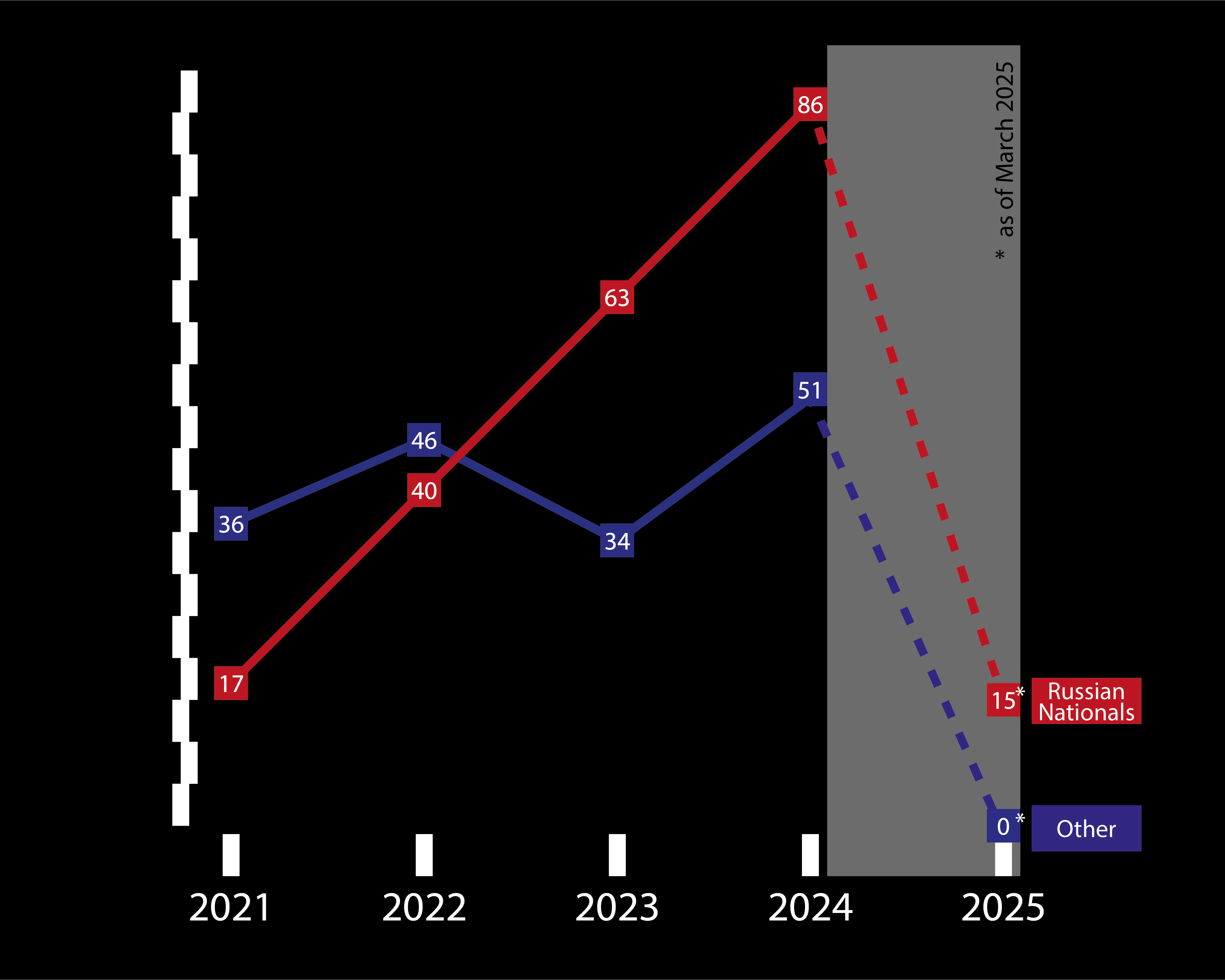The Russian investigative outlet Vazhnye Istorii has uncovered a citizenship scheme that allows Russian nationals—many with ties to the Kremlin or defense sector—to travel freely across Europe despite sanctions.
Since the large-scale invasion of Ukraine, the European Union has imposed extensive sanctions on Russia, including travel bans targeting hundreds of government officials, military personnel, and business elites. These restrictions aim to limit Russia’s access to European financial systems and territory, curbing the international mobility of individuals linked to the war effort.
However, since early 2022, Serbia has granted citizenship to over 330 foreigners “in the interest of the republic,” including 204 Russian nationals. Enabled by Article 19 of Serbia’s citizenship law, these fast-track naturalizations do not require residency or the renunciation of other citizenships. Serbian passports offer visa-free access to the EU and approximately 100 countries, making them appealing to Russian citizens amid wartime sanctions.
Recipients of Serbian citizenship include a broad range of Russian elites, many with direct ties to the Kremlin and the defense sector. These include executives from sanctioned military-industrial firms such as KRET, KOMZ, Aeromax, and other Rostec subsidiaries involved in producing avionics, missile components, and encrypted communications systems. High-profile individuals such as former FSB operatives, MMA fighter Fedor Emelianenko and billionaire businessman Sergey Lomakin also obtained Serbian passports, alongside figures active in the reconstruction and agricultural exploitation of occupied Ukrainian territories.
Many of these naturalizations coincided with multiple visits to Moscow by Serbia’s Vice Prime Minister Alexander Vulin, known for his longstanding ties to Russian intelligence. During this period, Vulin met with senior officials from the FSB and SVR, raising questions about potential coordination between the two governments.
While it was already widely known that air travel between the EU and Russia remained possible via stopovers in Serbia, Vazhnye Istorii’s investigation highlights how Serbian citizenship has become a vital tool for Russian elites to retain access to Europe and their assets, making Serbia key hub for circumventing sanctions and maintaining international mobility under the radar of EU enforcement mechanisms.

The graph above shows a steady increase in passport issuances to Russian nationals, while naturalizations for all other nationalities remain stable over the years, highlighting the systematic use and strategic necessity of this facilitated mobility for Russian elites.
All the data used in this article comes from Vazhnye Istorii.
